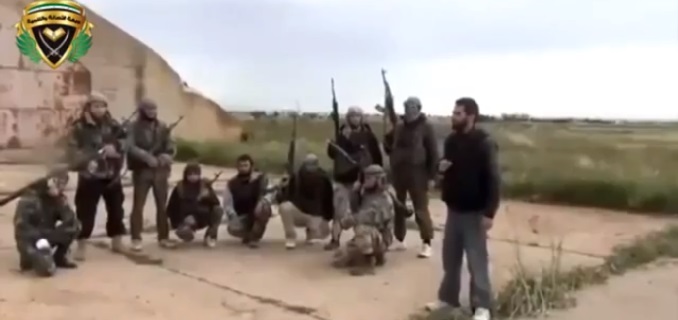Syrian rebels seized the Syrian side of the Quneitra border crossing yesterday. Even if they only held it temporarily, their achievement testifies to how far the Syrian civil war remains from resolution. Just a day earlier, Syrian officials said their army had succeeded in reconquering the key border town of Qusayr, one of its most significant achievements yet in the two-year war.
Syrian army officers posed for pictures in the city center – even at the town hall – to show Qusayr was indeed theirs. After a few hours of dithering, the opposition finally confirmed the obvious.
The army and its Hezbollah backers in the battle hope that the victory in Qusayr will be a game changer. The timing is particularly critical given that it comes on the eve of the Second Geneva Conference on Syria, which the United States and Russia are trying to organize to hammer out a hitherto elusive solution to the crisis.
But then the news arrived from Quneitra, where Free Syrian Army forces gained control of the Syrian side of the crossing, despite large Syrian army concentrations. It’s a considerable achievement for the rebels, and anti-Assad media outlets in the region boasted that even “senior Israeli officials” had confirmed the conquest – it was not mere battle propaganda.
Nonetheless Qusayr’s conquest will naturally whet the appetite of the Syrian army and its Hezbollah allies. Neither Hezbollah nor its Syrian patron has shown any sign of battle fatigue. The “Party of God” has already dedicated several thousand troops to fighting around Syria’s biggest cities Aleppo and Damascus.
Hezbollah celebrated Qusayr’s fall as if it had been an Israeli city. In the alleys of its Dahiyeh stronghold in south Beirut, placards were hung with the words “Qusayr has fallen.”
Pro-Assad forces appear to have discovered an efficient formula for victory. The Syrian air force softens rebel positions from above – aerial shots of Qusayr show much of the town flattened – after which veteran Hezbollah fighters engage the rebels on the ground.
Iran has reportedly ordered Hezbollah to place the entire weight of its force to saving Assad. Some 3,500 to 5,000 combined Syrian army and Hezbollah forces are now waiting on the northern outskirts of Aleppo, waiting to secure the country’s most populous city.
But Hezbollah’s victory at Qusayr also carries a certain price. The group and its leader Hassan Nasrallah were, for several years, the darlings of the Arab world for having “resisted” the Israeli enemy in the 2006 Second Lebanon War. Now they are outcasts. In mainstream Arabic media, they are now dubbed a “terrorist” group.
Another significant recent development is Syrian rebels’ willingness to move the fighting into Lebanese territory. Gen. Salim Idris, the putative head of the Free Syrian Army, said as much on Wednesday, promising to pursue Hezbollah fighters into Lebanon in a bid to put it on the defensive. Yesterday Idris partially made good on his promise, firing 12 rockets at Baalbek, the eastern Lebanese city that is the most important under Hezbollah control.
Hezbollah’s unambiguous solidarity with Assad, and its willingness to act even at the expense of dragging Lebanon into the Syrian conflict, has revealed its true face. It is not a Lebanese patriotic movement. It is a foreign arm of Iran that has no qualms over killing Lebanese and Syrians if it serves the group’s Iranian masters.
[Photo: SyriaResearch / YouTube]




